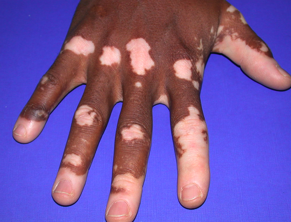Dermatologists may have found that a drug used to treat arthritis may also be used to reverse the effects of the skin condition vitiligo. The condition causes the skin to lose its pigmentation, but a 53-year-old patient suffering from vitiligo regained her pigmentation after five months of taking drug called tofacitinib citrate, which is normally reserved for patients with rheumatoid arthritis.
Dermatologists at Yale University’s School of Medicine led by assistant professor Brett King conducted the study, with results being published earlier this week in the journal JAMA Dermatology.
Vitiligo is a chronic condition that can be unsightly to look at, as the skin loses its pigmentation. Millions of people suffer from it, using steroid creams, light therapy, and other methods to treat it, but there are no known cures. Among those that have lived with vitiligo include the late Michael Jackson.
The 53-year-old patient from the study had white spots throughout her body, most notably her face and hands. Two months after starting treatment on tofacitinib citrate, the white spots started to dissipate, and after five months the spots were nearly gone entirely, with only a few remaining on the less-visible parts of her body.
Perhaps as important as the success in treating the white spots is the fact that the patient experienced no adverse side effects during treatment.
King explains, “White it’s one case, we anticipated the successful treatment of this patient based on our current understanding of the disease and how the drug works.” King has also had some success previously treating hair loss caused by alopecia with tofacitinib citrate.
Obviously, more research is needed using a larger group of patients to ensure that the drug is safe and effective, but this is one small step in finding a potential cure for the millions that suffer with vitiligo.


